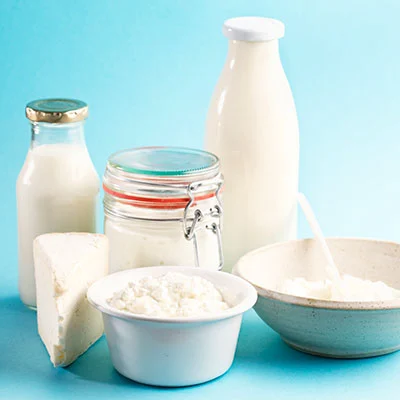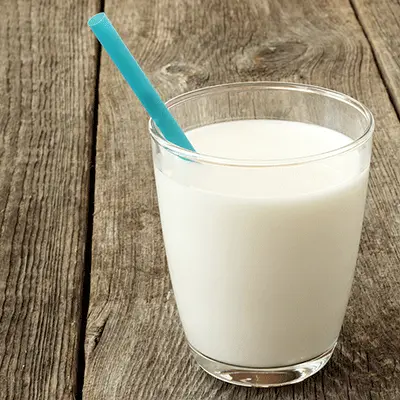What's the Difference Between Cow's Milk & Plant-Based Alternatives
In this series, Dr. Greg Miller, Ph.D., FACN, answers questions received from the health and wellness community.
Question: What’s the difference between cow’s milk and plant-based alternatives?
Answer: There is an extensive body of research linking milk consumption to health benefits. Although milk and plant-based alternatives sit side-by-side in the dairy case, non-dairy alternatives often do not provide the same nutrient profile as cow’s milk.
You can count on cow’s milk to have a consistent composition as reflected in its standard of identity. By contrast, the composition of plant-based alternatives varies by brand.
Here are a few more things to keep in mind as you help people navigate their beverage choices:
- Cow’s milk is rich in certain nutrients such as calcium, phosphorus, riboflavin and vitamin B12. Plant-based alternatives are often fortified with nutrients they do not naturally contain.
- Cow’s milk typically delivers a higher quality of protein than some plant-based alternatives. For example, almond, cashew, coconut and rice beverages offer little or no protein per 8-ounce serving (0-1 grams), while cow’s milk provides 8 grams of high-quality protein for the same serving size.
- The Dietary Guidelines for Americans (DGA) recommends three servings of low-fat or fat-free dairy foods per day as part of the Healthy U.S.-Style Eating Pattern for people nine years and older. Alternative beverages, other than soy beverages fortified with calcium, vitamin A and D, are not included in the dairy group because “their overall nutritional content is not similar to dairy milk and fortified soy beverages,” the DGA states.
- The American Academy of Pediatrics recommends 16-24 fl oz. of plain whole milk for children starting at one year.
- The Dietary Guidelines for Americans recommends two servings of low-fat or fat-free milk, or fortified soy beverages for children aged 2 to 3 years, and 2 1/2 servings for children 4 to 8 years.
- Plant-based alternatives should not be the main beverage for young children, according to a joint statement by Dietitians of Canada and the Canadian Pediatric Society. These beverages may lack the nutrients children need, including protein and fat.
- Children 1-2 years old should drink whole cow’s milk.
- For children 2-8 years: Cow’s milk or fortified soy beverage will go a long way in supporting children’s protein needs.
- “In the case of allergies, or other concerns, I recommend parents speak with a dietitian to ensure all nutrient needs, including protein, fat and calories are being met with an age-appropriate diet,” says Dr. Catherine Pound, pediatrician and spokesperson for the Canadian Pediatric Society.
- An article by the American Academy of Pediatrics recommends parents check the labels of plant-based milk alternatives, since the amount of protein and calories vary by brand. A chart compares the nutritional content of whole cow’s milk and several plant-based alternatives.
- In adults, healthy eating patterns, which include low-fat and fat-free dairy foods, are linked to reduced risk of certain chronic diseases, such as cardiovascular disease and Type 2 diabetes. Dairy consumption is also linked to improved bone health, especially in children and adolescents.















